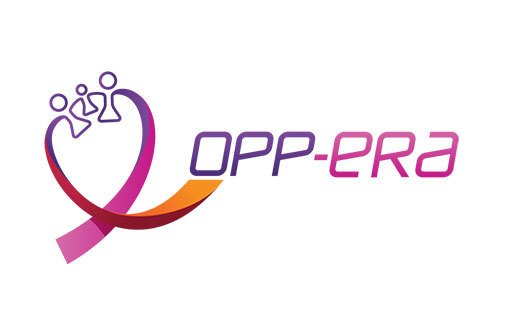OPP-ERA project: better access to HIV viral load measurement in Cameroon
Catching up in access to the viral load via open polyvalent platforms
Viral load measurement is the only way to verify the effectiveness of HIV treatment. Difficulties to access the viral load undermine global efforts to treat people living with HIV. In 2014, UNAIDS set the “90x90x90” target so that by 2020, 90% of all people living with HIV shall know their HIV status, 90% of people diagnosed with HIV shall be under HIV treatment and 90% of people treated shall have an undetectable viral load, proving that effective treatment is being maintained.
 The OPP-ERA project is working for these targets by providing an innovative technology based on the use of open polyvalent platforms. It has been implemented in Burundi, Cameroon, Côte d’Ivoire and Guinea since March 2013 and increases access to an innovative open system of bio-molecular techniques for laboratories which measures the HIV viral load.
The OPP-ERA project is working for these targets by providing an innovative technology based on the use of open polyvalent platforms. It has been implemented in Burundi, Cameroon, Côte d’Ivoire and Guinea since March 2013 and increases access to an innovative open system of bio-molecular techniques for laboratories which measures the HIV viral load.
“The OPP-ERA project arrived in Cameroon at the right moment: it prepared the ground and contributed to decision-making over establishing the analysis of the viral load as the main test for monitoring the effectiveness of the routine treatment. It has also contributed to creating demand by training doctors, investing in the samples circuit and reducing the time required to obtain results for patients”, explains Dr. Marinette C. Ngo Nemb Epse Tchato, a public health doctor and head of the “Health Sector Support” section at the Cameroon National AIDS Control Committee (CNLS).
Achievements of the OPP-ERA project in Cameroon
In Cameroon, the OPP-ERA project has been implemented by Expertise France, through its local coordination office in Yaoundé, working with the Ministry of Public Health, scientific partners, the Global Fund and PEPFAR.
The OPP-ERA project has equipped four laboratories:
• Laquintinie Hospital in Douala in the Coastal region and the laboratory of the Centre Pasteur (Garoua annex) in the North region, starting in 2014;
• Two more recent sites started their activity in 2019, at Yaoundé’s Central Hospital (Centre region) and the last at the regional Hospital in Bertoua (East region).
In addition to the equipment, the OPP-ERA project has trained laboratory staff and promoted exchanges of experience between the countries of operation (Guinea, Burundi, Cameroon and Côte d’Ivoire). Over 16 technicians and biologists have been trained, including 9 who have been authorised to carry out the viral load test on the open polyvalent platform (OPP). All the sites have undertaken an accreditation process for the laboratories to ensure they are sustainable and to professionalise them.
Between 2016 and 2019, the coverage of needs for VIH-1 viral load tests in Cameroon rose from 22 to 62%, with the aim of reaching 80% in 2020. Between 2014 and 2018, in the laboratories supported by the project, 63,800 viral load tests were carried out on the open platforms. In 2018, 79% of the patients tested on these platforms had an undetectable viral load.
This project will end in Cameroon on 31 December 2019. The last activities carried out aim to ensure the transition and the takeover of the activities by the CNLS, with support from the Global Fund and technical assistance from the various departments.
Financed by UNITAID, the OPP-ERA project is cofinanced and implemented by a consortium of French partners: Solthis (Therapeutic Solidarity and Initiatives for Health), the leader and responsible for implementation in Guinea; ANRS, responsible for the scientific leadership and the promotion of the results; Expertise France, responsible for implementation in Côte d’Ivoire and Cameroon; and Sidaction, responsible for implementation in Burundi.
More about the OPP-ERA project 
Picture: ©Solthis

